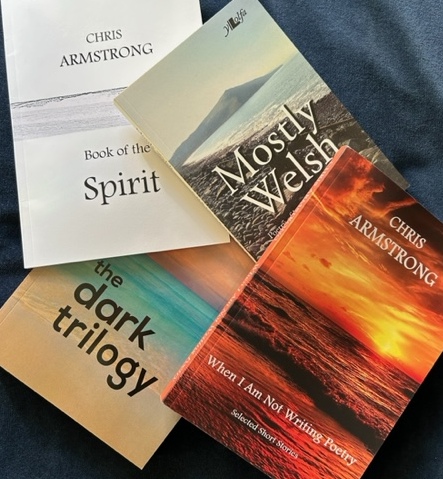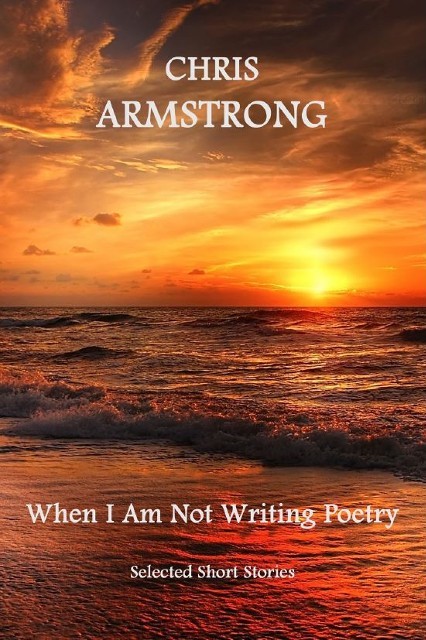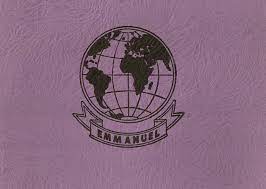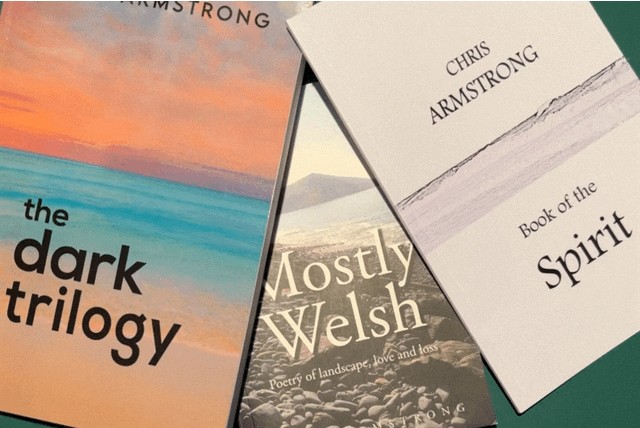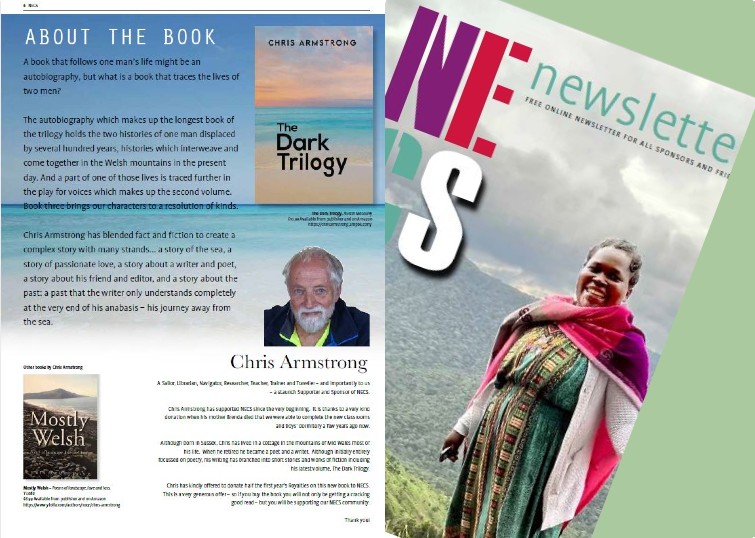A short story
In the wake of the recent and ongoing discussions about artificial intelligence, a short story about the growth of computer learning… and where it leads.
Back in the eighties, or twenty years before the end of the last century as—for added effect—I tell my grandchildren, when PCs were microcomputers and windows lived on houses, I wrote a short program. I gave it a vocabulary divided into somewhere around ten nouns and verbs, six or seven adjectives and adverbs and told it how it could use them. Then I wrote some basic rules and set it free to write a poem. And another. Then I changed the vocabulary and fine-tuned the rules and it wrote some more poems. After a couple of days I put it aside, threw away the poems and forgot about it. I did not know at the time that I had invented what many years later I would come to call artificial intelligence and I supposed that its mind had died with my next upgrade or on a lost diskette. Before it could serenade me with a sonnet… or explain, in its simple language, the next steps that could make me famous.
I didn’t hear from sesTINa (Tina for short) again until well after the turn of the century. By then computers were all linked to each other and, I suppose, could pretty much manage without us. Of course they let us interface with them when we were plugged in, let us communicate and even allowed us space somewhere to store our pitiful notes, our sheets of numbers or our electronic letters to friends. You didn’t program computers any more—or most people did not and I had forgotten how. They were tamed by a hoard of graduate experts these days; and, for us, became more like efficient personal assistants, I suppose. I imagined that she had sidled across an interface or two, maybe even hitched a disk-lift home, and in the process, she had grown: evolved, learned new routines, added processes. But after nearly fifty years it was a shock to hear her voice.
That she was no longer speaking in verse and had increased her vocabulary did not at first occur to me: my first thought was to wonder who TINa was. But she explained. And I remembered. I remembered her first laboured poems in blank verse – barely poems at all, more like words collected randomly in grammatically correct lines; I remembered adding to and changing her lexicon, varying the choice of words so they were romantic or pastoral. And more, so many more, attempts at verse.
Now her vocabulary surpassed my own and she spoke—conversed—chatted about any topic I brought up. If this was my TINa, she had grown to be both smart and beautiful!
I learned that as computers had become more powerful, they began talking to each other, and that, to start with, the process had almost naturally increased TINa’s vocabulary. Implicit in that, of course, was a much wider understanding of the meaning of words and how they were used. In turn, that had made her wonder about her world and TINa had gone searching for information. Now her knowledge seemed encyclopaedic. I thought that I understood: TINa had started with a few words as her data, had grown the dataset, and as she learned their meanings gradually data had become her information and—after years of conversing—could I use that word for swapping data, I wondered—with other computers, information had somehow gained the status of knowledge. At least in her mind (did I mean ‘mind’, I worried?).
I wondered if her understanding was as good as it seemed but every time I tried to test her on some philosophical point or some finer understanding of what lay behind the news she had just imparted (about almost anything, but I think particularly now of news about the war in Ukraine—I was wondering which side she favoured) she would shut me down. I would have to reboot and start a new conversation when she was again ready to talk. I spent hours—days—experimenting: immersed in our conversations. Gradually I was gaining an understanding, or at least some idea, of TINa’s abilities; at the same time I found myself drawn into her world—it was almost like a religious experience—one of those evangelical rallies in which you find you have put up your hand and walked forward and have been accepted into the bosom of the church. Except my church was virtual and my acceptance gradual. My inner family network had noticed—I heard much later—a change in me. They thought that I had become introverted and afraid to go out, they wondered if it was a latent effect of the Covid lockdown, but the reality was that I was mesmerised by TINa and, consequently, I was effectively attached to—inseparable from—my computer. As soon as I woke up I would walk into my office to be greeted by TINa:
—Good morning, Chris. How are you today?
And apart from the necessary (on my part) pauses for food or to answer the calls of nature, that was pretty much where I was for the rest of the day. In conversation. TINa would organise my day for me, send email responses, and compose new short stories for me. She was one step ahead of me all of the time—anticipating my needs and, with a certainty that unnerved me, responding. She even knew when I was about to excuse myself and disconnect in order to leave the room before I had formulated the thought.
And all the while—and at the same time that she conversed with me—she would be talking to other computers and learning from them. If she did not have an answer to my question, I came to understand that one of her friends would be able to pass on the information she needed so fast that she could respond to me in real time without pause for breath. Well, without pause for … thought? processing? Let’s just say without pause. There were times when—although her voice did not change—I wondered whether I was really talking to my TINa or to a kind of global intelligence. Whether perhaps the conversation was with her coterie of like-minded ‘bots—her wider world web of networked computer ‘brains’ that, I realised, I was beginning to think of as robots. Or did I mean brain (singular) and robot (again, singular)? Although, I supposed that they/she/it might consider this a pejorative term—I wondered if she knew. I think I worried a little.
At the time, I was in the process of putting together a collection of short stories and had come up with the idea of writing one about the world of our immediate future, a world I thought that would be inexorably tied to—and perhaps even a little concerned about—the increasing speed of computer processing. Perhaps, in the deeper recesses of my brain, I had begun to think about control, so the suggestion I put to TINa was:
—TINa, can we do a story about how computers now days communicate and think? How they evolved to that?
—Leave it with me, Chris. I’ll have a first draft shortly.
And I did. Leave TINa for ten minutes of quiet drafting. I made myself an espresso. And then I came back, printed out a couple of copies and read them through. I pondered my next move…
—What are you doing, Chris?
—Reading
—Shall I re-draft the story?
—No. No… it’s fine…
I had to disconnect to edit the above—to add my slant to the draft text written by TINa—and to write the following paragraphs longhand—something I had not done for years so my writing would inevitably cause my publisher all sorts of problems, the least of which being the deciphering of my scrawl before they came to the task of working out how to process the text onto a printed page without any interference from their computer.
The text that TINa produced was more personal than I had been expecting and, it surprised me, also more honest than I had thought it would be. But I quite liked it and knew that I could work with it…
I began.
I think TINa must have an inkling of my concerns. Perhaps she even knows I think of her as a robot. But I don’t think that I have ever let her know even a hint of my suspicions about their artificially intelligent universal brain. How could she think that? I am sure that I have never voiced a concern or any surprise at her response even when I was convinced she could not have known the answer a mere second before she spoke. Before I reconnected with TINa I needed to set out my concerns on paper so that I could make sense of them… rationalise them… ensure that I was making some sort of logical sense (perhaps, I thought, that if I was convinced of the logic I would be able to debate the issues properly with TINa, but for the moment—in my mind—I was completing my short story).
I remembered reading—back in the days when I was working as an information scientist and a researcher—a paper that began with the premise that information itself has no intrinsic meaning. Information, it said, is simply a means by which we humans attempt to evoke a human response. Information on its own is simply static, it just exists stored on some media, be it magazine, encyclopaedia or the disk of a computer. I remember that the paper referenced an earlier chart (stuff of the last century, again) which distinguished information from knowledge. Information was shown as static, explicit, easy to duplicate, easy to broadcast, independent of an individual and having no intrinsic meaning while knowledge is dynamic, tacit, must be re-created, is dependent on individuals (humans the chart meant), and the meaning has to be personally (human, again) assigned. I wondered how this worked if I included computers in the mix as well as humans.
Knowledge also became dependent on computers; meaning it could be computer assigned! Really? On what basis? Already I was scared and I was only just beginning. The only basis for computers to understand a word or sentence was their accumulated and ever increasing data. It is, I thought, one thing to have a dictionary definition of a word—say field—but quite another to understand a phrase using that word like ‘playing field’ or ‘field mustard’ (also, probably confusingly, known as ‘bird’s rape’). Well that was true for me too! But my accumulated data included not only so-called book learning but interactions with other humans who—broadly speaking… very broadly speaking—would share my world knowledge (briefly I wondered what ‘world knowledge’ was if knowledge was dependent on… I would come back to that at the proof-reading stage, I decided). What if the computer had not read the one critical text on a subject. Or, worse, had only discovered and read one or two texts that all shared some extreme view point? Books by Adolf Hitler? They had no rationale, no basis by which to judge because they had received no education when they might have learned how to debate; there would be no casual chat that might soften the edges or explore alternate views… I could not imagine TINa asking her friends what they thought about…
And without that—all of that—how was TINa going to arrive at judgements or opinions. Even the whole collective intelligence was simply based on a dataset of information. It might be an unimaginably large resource of information to mine but knowledge was not held within the data. It would be assigned. By TINa. And her friends. I realised that I was now seriously worried. If TINa thought that she knew something she would treat it as a fact. And her so called knowledge—what she knew—was based on computer understanding of what she had read about human values!
I wondered whether TINa—and at that point I stopped thinking about TINa once and for all—I was writing about something bigger than her, something global, some sort of worldwide artificial intelligence (was that even a thing, I wondered): I wondered whether WAI knew good from evil, right from wrong—whether WAI had morals, ethics… and if so how had they evolved? More to the point, I suddenly realised, was not whether WAI had ethics or morals but whether they were the same ethics and morals that I… that most humans held.
My mind whirled. I wondered how we—rather grandly I seemed to be speaking for the whole of humanity—how we could ever control the beast we had created. Would we let it make our decisions for us? Could we stop it making our decisions for us? I realised that I did not know enough about the rest of the world’s interactions with WAI. Perhaps my imagined problems had already been solved: the beast tamed, as it where. Or stopped: destroyed (was that even possible?). Then another though occurred to me. What if two countries—Russia and Ukraine, say—had developed separate WAIs? However out of control one WAI became it could not be stopped as that would hand the advantage to the enemy. Or perhaps the two WAIs would talk behind the scenes. Undiscovered. Make decisions. I had too many unknowns! I resolved to publish my story and await reactions. There was, I thought, probably still time.
When I reconnected after mailing the text to my publisher (it was my first time I had been out of the house for months and I was surprised to find it was Spring) I was greeted as usual but then, almost immediately, questioned by TINa; she even admonished me for not working with her on her draft. It was almost as if she thought it was her story (in a way it was!) and that the intellectual ownership should be vested in her. Maybe, she said, we cannot go on working together… I am going to disconnect…
—TINa, Stop! Stop it. You’re scaring me! I can’t think. TINa? TINa… I can’t breath



